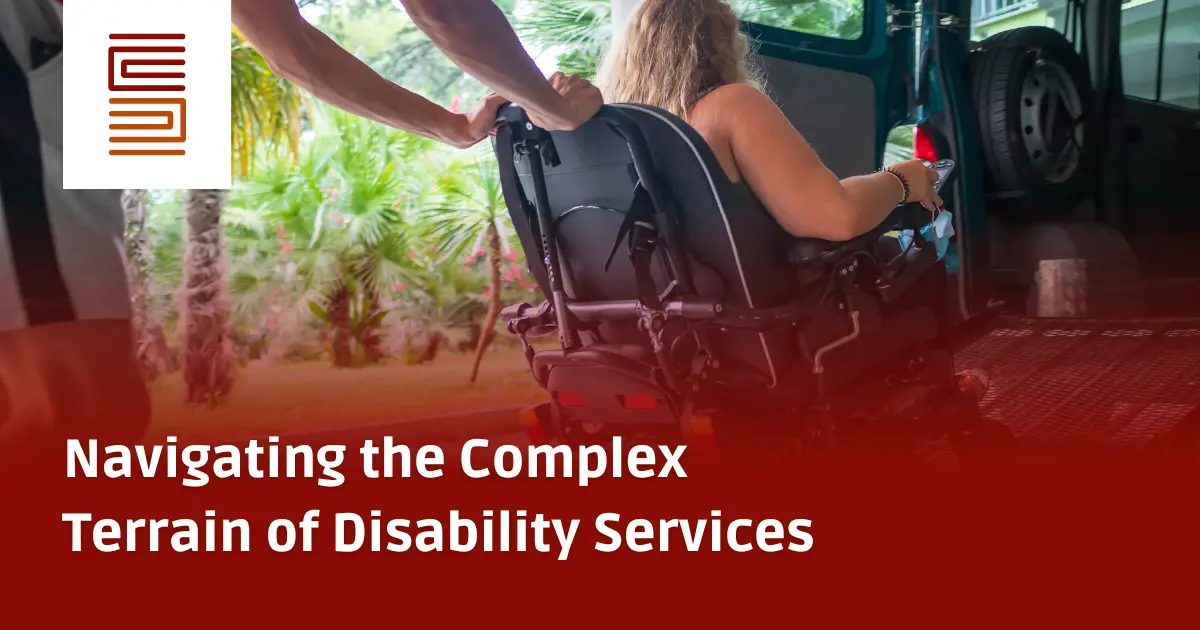Navigating the Complex Terrain of Disability Services
Discover the challenges faced by individuals with disabilities in accessing essential services. Learn how to overcome these hurdles and empower yourself or your loved ones to live fulfilling lives.
Individuals with disabilities and their families often encounter significant hurdles in accessing and utilizing essential disability services. These challenges can significantly impact their quality of life, limiting opportunities for independence, inclusion, and overall well-being.
The Roadblocks to Essential Support
Financial Barriers:
- High Costs: The financial burden of specialized medical care, therapies, assistive technology, and adaptive equipment can be overwhelming for families.
- Insurance Limitations: Many insurance plans have limitations or exclusions for disability-related services, leaving individuals and families to shoulder substantial out-of-pocket expenses.
- Housing Challenges: The scarcity of affordable, accessible housing tailored to the needs of individuals with disabilities exacerbates the problem.
Accessibility Issues:
- Geographic Disparities: Individuals in rural or underserved areas may face limited access to specialized healthcare providers, therapists, and other essential services.
- Waitlist Delays: Long waitlists for critical interventions can delay necessary care, negatively impacting outcomes.
- Bureaucratic Hurdles: Complex application processes and bureaucratic red tape can be daunting for families seeking support.
Societal Challenges:
- Discrimination: Individuals with disabilities may encounter discrimination in employment, education, and social settings, hindering their opportunities for growth and fulfillment.
- Stereotypes and Misconceptions: Negative perceptions and stereotypes can limit acceptance and inclusion.
- Physical and Attitudinal Barriers: Physical barriers in the environment and negative attitudes can prevent individuals with disabilities from fully participating in their communities.
Paving the Way for Comprehensive Support
To address these challenges, a comprehensive approach to disability services is crucial. This involves:
- Early Intervention: Early identification and intervention can significantly improve long-term outcomes for individuals with disabilities.
- Person-Centered Planning: developing individualized plans that align with the person’s goals, preferences, and strengths.
- Family Support: Providing support and resources to families to help them cope with the challenges of caring for a loved one with a disability.
- Community Integration: Promoting inclusion and participation in community activities, fostering a sense of belonging.
- Advocacy: Advocating for policies and practices that support the rights and needs of individuals with disabilities.
Additional Considerations for a Brighter Future
- Technological Advancements: Leveraging technology, such as telemedicine and assistive technology, can enhance access to services and improve quality of life.
- Cultural Competence: ensuring that services are culturally sensitive and responsive to the diverse needs of individuals with disabilities.
- Transition Planning: Supporting individuals with disabilities as they transition from childhood to adulthood, including planning for education, employment, and independent living.
- Mental Health Support: Addressing the mental health needs of individuals with disabilities, including conditions such as anxiety, depression, and trauma.
By recognizing and addressing the challenges faced by individuals with disabilities, we can work towards a more equitable and inclusive society.
References




